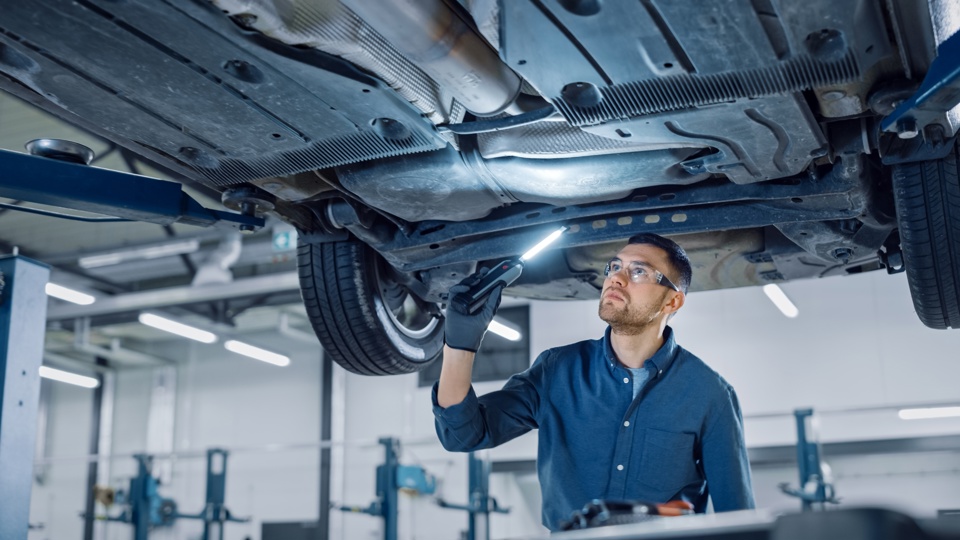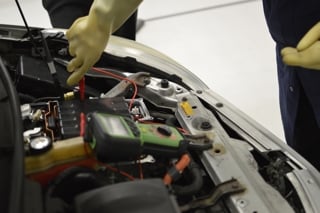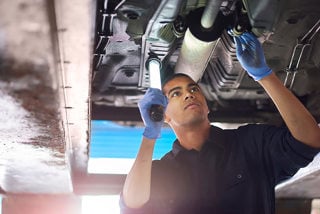Almost half (48%) of independent garages and franchise dealer workshops say they will look to avoid passing on rising operational costs to customers, research from the Motor Ombudsman suggests.
Three-in five respondents to the Motor Ombudsman poll (59%) stated that paying more for replacement car components due to shortages and inflation would be an issue in the coming year.
When asked about the difficulty in recruiting qualified staff to expand capacity, 43% stated that adding experienced technicians to their team would continue to be a challenge.
However, this is a slight improvement on the 50% of businesses that said in the survey that they had struggled to recruit in 2022.
With fewer moving and serviceable parts on electric vehicles (EVs), around a third of workshops (32%) stated that EVs would provide less scope for additional revenue and aftermarket opportunities in 2023.
However, with EVs making up a growing proportion of the car parc, nearly half of the businesses surveyed (44%) still plan to invest in staff training on EVs, while around a quarter (23%) explained that they would be looking to introduce or add charging points at their premises.
Bill Fennell, chief ombudsman and managing director of The Motor Ombudsman, said: “Following the festive break, it is a case of picking up from where we left off in 2022, as the findings from our research show that garages and workshops will have to contend with a multitude of challenges this year.
“At the forefront of these will be navigating a rise in operational costs at a time when many consumers are feeling the strain on their finances, meaning vehicle maintenance and repairs could take a back seat.”
He added: “As the headwinds facing the economy and households show little sign of abating in the short term, remaining competitive, retaining customers, and finding new revenue channels, will therefore be crucial for businesses in order to deliver a positive bottom line.”
The Motor Ombudsman’s findings come after several warnings of increasing service, maintenance and repair (SMR) costs for fleets with some vehicles having contracts extended due to long lead times for new vehicles.
Research from Epyx revealed that reduced new car supply and contract extensions have resulted in the proportion of SMR spend increasing on fleet cars aged four years old or over.
Analysis by Epyx showed that it has increased by more than a half since the pandemic, rising from 28% in 2018 to 43% in 2022.
Furthermore, Epyx says that the average SMR invoice price for those older vehicles is 24% higher than for those aged below four years.
Epyx’s data shows that in 2018, total SMR spend was weighted 72% towards vehicles aged under four years and 28% towards four years and over.
By 2022, this has changed to 57% under four years and 43% for four years and over.























Login to comment
Comments
No comments have been made yet.